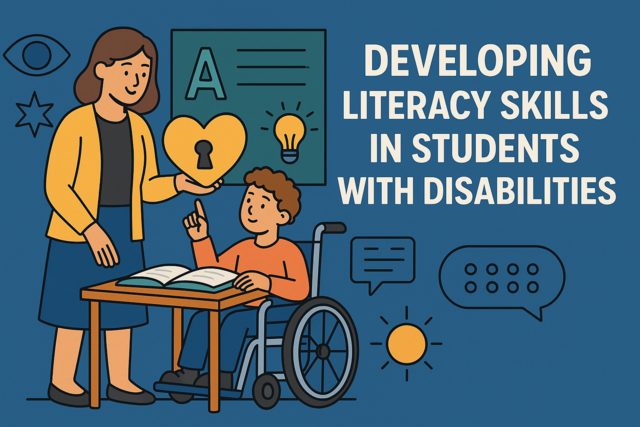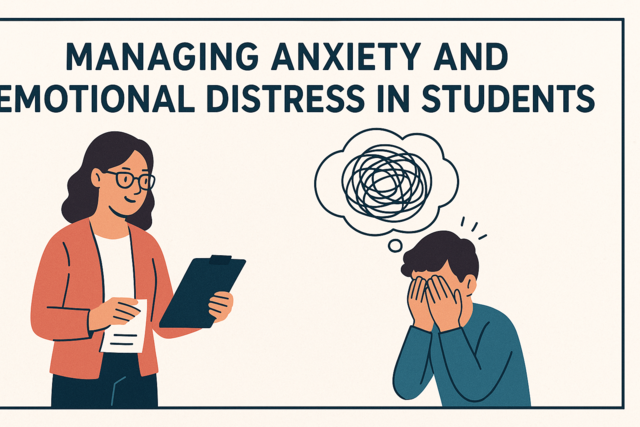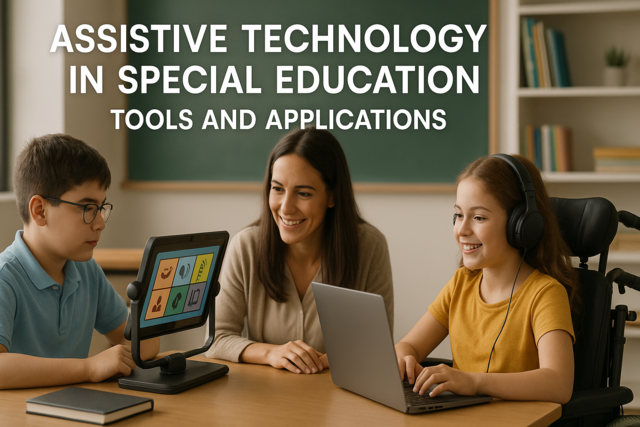Online Class: Special Education Advocacy — Working with Parents and Families

no certificate
with CEU Certificate*
-
15Lessons
-
22Exams &
Assignments -
3Hours
average time -
0.3CEUs
Course Description
Imagine a world where every child, regardless of their abilities, is celebrated and empowered to reach their highest potential. In this evolving landscape, where despite progress, challenges still loom, we find the intersection of opportunity and responsibility, a place where passionate voices rise to advocate for those who cannot yet fully advocate for themselves. This is a narrative of change, resilience, and collaboration, inviting you to be an intrinsic part of a movement that transforms lives.
Welcome to "Special Education Advocacy: Working with Parents and Families," a course that transcends the role of a mere academic journey and becomes a powerful catalyst for societal change. Here, you are not just a student; you are an advocate in the making, ready to harness knowledge as a tool for empowerment, creating bridges between educators, families, and the communities they serve, anchored by your newfound expertise.
From the moment you embark on this course, you'll find yourself exploring the riveting odyssey of special education law—a striking progression from exclusion to inclusion. You'll delve into poignant stories of legal triumphs like the Individuals with Disabilities Education Act, stories that have shifted paradigms and opened doors for countless children. As you immerse yourself in these narratives, the law becomes more than text; it becomes a beacon of hope and justice, inspiring you to engage and advocate with confidence and purpose.
Imagine developing cultural awareness that transcends intellectual understanding to become an intrinsic part of your advocacy. This course allows you to step into the shoes of diverse families, exploring varied cultural narratives and values. By embracing these perspectives, you will enhance your empathy and communication skills, creating inclusive and resilient learning environments where every child can thrive.
Our journey continues with a focus on building partnerships grounded in trust and collaboration. As you learn to navigate the complex dynamics of educational advocacy, you'll discover how socioeconomic factors create barriers and how empathy and flexibility can dismantle them. You become the fulcrum of change, crafting partnerships that empower all stakeholders in a child's educational journey.
Venturing further, the course unfolds the intricate tapestry of IEPs—customized, adaptive plans that lie at the heart of special education. Here, you will master the fine art of aligning educational strategies with a child's unique needs. Legal frameworks transform into instruments of empowerment, and you emerge as a skilled negotiator who can drive meaningful changes in education and beyond.
Then, our course invites you to contemplate and address the nuanced challenges of special education advocacy within multicultural contexts. You will be equipped with strategies to transcend language barriers, ensuring inclusivity and building communities where every voice is heard. This course doesn't just provide you with information; it molds you into an advocate who champions diversity as a profound strength.
As we uncover resources like adaptive technology and community programs, you'll learn to unearth hidden gems that support educational and social growth for children with disabilities, embracing the notion of a collaborative, resource-rich community. This journey holds practical wisdom—a toolkit you can wield to transform families' lives, guiding them to untapped opportunities for growth and achievement.
We'll guide you through evaluating and leveraging the legal frameworks necessary for securing equal educational access, and by embracing these pillars, you will empower children to thrive in well-prepared educational spaces. You become a steward of their futures, navigating complex systems to unlock potential and foster independence.
By the end of this course, you will possess more than just expertise; you will have experienced a metamorphosis. You'll carry the steadfast conviction that your role as an advocate is indispensable. You will feel the urgency, the drive, and the joy of making an indelible mark on the world, nurturing environments where children of all abilities flourish.
Join us in writing this compelling chapter of advocacy and empowerment. Enroll now, and become a change-maker who crafts a future where every child's potential is realized, supported by families and communities fortified by your dedication and expertise. This is not just a course. It's your calling. Welcome aboard.
- Completely Online
- Self-Paced
- 6 Months to Complete
- 24/7 Availability
- Start Anytime
- PC & Mac Compatible
- Android & iOS Friendly
- Accredited CEUs

Course Lessons
Lesson 1. The Journey of Special Education Law
The lesson narrates the transformative development of special education law from exclusion to inclusion, underscoring the collaborative efforts of educators, families, and communities in advocating for disability rights. It highlights pivotal legal milestones that have shaped current practices, such as the Individuals with Disabilities Education Act, which ensures educational equity and inclusivity for children with disabilities.Lesson 2. The Role of Cultural Awareness in Enhancing Educational Outcomes
Empathetic communication and cultural competence are essential for special education advocates working with diverse families to create collaborative learning environments. By considering family structures and cultural values, advocates enhance educational opportunities and foster resilience for children with special needs.Lesson 3. Building Bridges: Effective Partnerships in Special Education
Socioeconomic status can hinder parental participation in education due to restricted access to resources and time constraints. Schools can accommodate by offering flexible communication options, ensuring inclusivity for economically diverse families.Lesson 4. Navigating IEPs: Legal Frameworks and Parental Advocacy
IEPs, mandated by IDEA, are personalized plans that ensure educational equity by catering to the unique needs of students with disabilities. Engaged parents and educators collaborate to create adaptable strategies, promoting student growth and advocacy.Lesson 5. Special Education Law 101
Navigating the Individualized Education Program (IEP) process requires preparation and active involvement to align educational strategies with a child's specific needs, capabilities, and aspirations. By engaging in proactive discussions, setting clear goals, and consistently tracking progress, advocates and families drive meaningful educational enhancements.Lesson 6. Cultural Dynamics in Special Education: Challenges and Opportunities
Language barriers and unfamiliarity with the education system can hinder immigrant families' advocacy efforts in special education. Schools can empower these families by providing interpreters and culturally competent staff, facilitating full engagement in the advocacy process.Lesson 7. Empowering Parents: Navigating Special Education Laws for Effective Advocacy
IDEA mandates the provision of Free Appropriate Public Education (FAPE) and emphasizes personalized educational programs for students with disabilities, underscoring the importance of parental involvement in the IEP process. Through active collaboration with educators and understanding legal rights, parents can help tailor educational experiences that align with their child's unique needs and strengths.Lesson 8. Unlocking Trust and Collaboration in Special Education Partnerships
Cultural differences can create misunderstandings in the special education context, as perceptions of disability and education vary across backgrounds. Employing culturally competent practices and ensuring bilingual support can bridge these gaps, fostering inclusivity and better communication.Lesson 9. IDEA, IEPs, and Realizing Student Potentials
Family involvement is vital in special education transition planning, providing insights and advocating for services that align with their children's goals. Lasting partnerships between families, schools, and external agencies support a stable transition, fostering independence and self-determination in students.Lesson 10. Unveiling the Evaluation Process: A Guide for Parents and Educators
Proactive, personalized communication keeps families engaged in their child's education, supporting active involvement through various media while respecting their communication preferences. Families gain advocacy strength through provided knowledge on rights and services, ensuring meaningful participation in their child's educational journey.Lesson 11. Empowering Parents through Special Education Resources
Public libraries and health clinics provide hidden gems like adaptive technology, affordable therapies, and inclusive programs, boosting educational and social growth for children with disabilities. Tapping into these can renew a child's sense of inclusion and support classroom achievements.Lesson 12. Harnessing Diversity: A New Approach to Learning
In the realm of special education, understanding and appreciating diverse learner needs is fundamental to creating effective educational experiences, with individualized education plans (IEPs) serving as personalized roadmaps crafted through collaboration. By recognizing varied intelligences and the importance of cultural and linguistic diversity, educators can create inclusive environments that respect and nurture each student's unique strengths and challenges.Lesson 13. Understanding Disability Rights in Education
The ADA extends legal protections against disability discrimination to all areas of public life, ensuring that educational institutions accommodate students' needs regardless of federal funding. By addressing barriers within schools—from accessibility to communication—ADA fosters fully inclusive educational spaces where students with disabilities can thrive.Lesson 14. Building Bridges: The Art of Communicating for Special Education Success
Navigating legal pathways, including IDEA, Section 504, and ADA, is critical for ensuring students with disabilities receive necessary assistive technologies. By understanding these laws, advocates empower themselves to secure equitable access to education, providing tools integral to students' learning experiences.Lesson 15. Tailored Environments: Creating Inclusive Homes for Children with Special Needs
Tailoring sensory-friendly home environments for children with sensory needs enhances learning and comfort by adjusting stimuli like sound, light, and texture. Utilizing community resources and technology supports this, facilitating personalized developmental pathways.
Learning Outcomes
- Demonstrate understanding of the Individuals with Disabilities Education Act (IDEA) by outlining its main components and discussing how it shapes special education practices and policies.
- Describe the historical progression and significance of special education law from the 19th century to the modern era, highlighting key legal milestones and societal shifts.
- Define cultural competence in the context of special education advocacy and explain its impact on family engagement.
- Demonstrate active listening skills during an Individualized Education Program (IEP) meeting to ensure effective communication and collaboration with parents.
- Demonstrate effective strategies for overcoming communication barriers in special education, including active listening and cultural competence, to enhance collaboration with families.
- Recognize and describe common communication barriers in special education advocacy, such as language differences and cultural misunderstandings.
- Demonstrate effective communication strategies to facilitate collaboration between families and educators in the development and implementation of an IEP, ensuring tailored support for the student's unique needs.
- Identify the specific legal rights and responsibilities under the Individuals with Disabilities Education Act (IDEA) that parents can utilize to advocate for their child's Individualized Education Program (IEP).
- Recognize and describe how Section 504 and the Americans with Disabilities Act (ADA) collaboratively function to prohibit discrimination and enhance accessibility for students with disabilities in educational settings.
- Define the key components of the Individuals with Disabilities Education Act (IDEA) and how they ensure students with disabilities receive a Free Appropriate Public Education (FAPE).
- Define and demonstrate effective communication strategies for engaging with culturally diverse families in special education advocacy.
- Recognize and adapt educational approaches to incorporate cultural diversity, enhancing inclusive and supportive learning environments for students with diverse backgrounds.
- Define the key elements of the Individuals with Disabilities Education Act (IDEA) and explain their impact on ensuring Free Appropriate Public Education (FAPE) for students with disabilities.
- Demonstrate mastery of lesson content at levels of 70% or higher.
Additional Course Information

- Document Your Lifelong Learning Achievements
- Earn an Official Certificate Documenting Course Hours and CEUs
- Verify Your Certificate with a Unique Serial Number Online
- View and Share Your Certificate Online or Download/Print as PDF
- Display Your Certificate on Your Resume and Promote Your Achievements Using Social Media

Choose Your Subscription Plan
No Certificate / No CEUs
This course only
| Includes certificate | X |
| Includes CEUs | X |
| Self-paced |

|
| Instructor support |

|
| Time to complete | 6 months |
| No. of courses | 1 course |
Certificate & CEUs
This course only
| Includes certificate |

|
| Includes CEUs |

|
| Self-paced |

|
| Instructor support |

|
| Time to complete | 6 months |
| No. of courses | 1 course |
Certificates & CEUs
Includes all 600+ courses
| Includes certificate |

|
| Includes CEUs |

|
| Self-paced |

|
| Instructor support |

|
| Time to complete | 12 Months |
| No. of courses | 600+ |
Certificates & CEUs
Includes all 600+ courses
| Includes certificate |

|
| Includes CEUs |

|
| Self-paced |

|
| Instructor support |

|
| Time to complete | 24 Months |
| No. of courses | 600+ |
Related Courses
-
 4 hours
0.4 CEUs
Elite Ensembles: Crafting Timeless Women's Looks
+ More Info
4 hours
0.4 CEUs
Elite Ensembles: Crafting Timeless Women's Looks
+ More Info
-
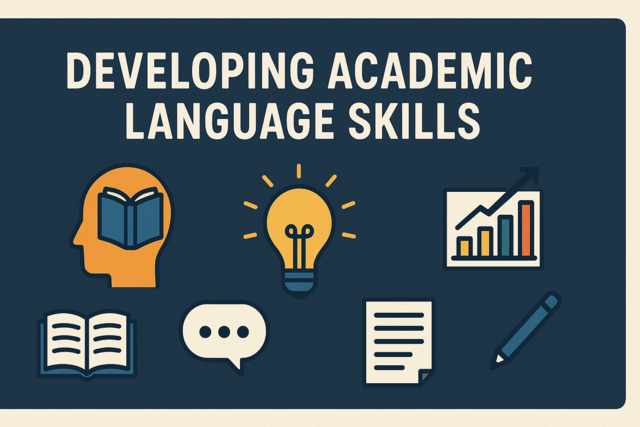 7 hours
0.7 CEUs
Developing Academic Language Skills
+ More Info
7 hours
0.7 CEUs
Developing Academic Language Skills
+ More Info
-
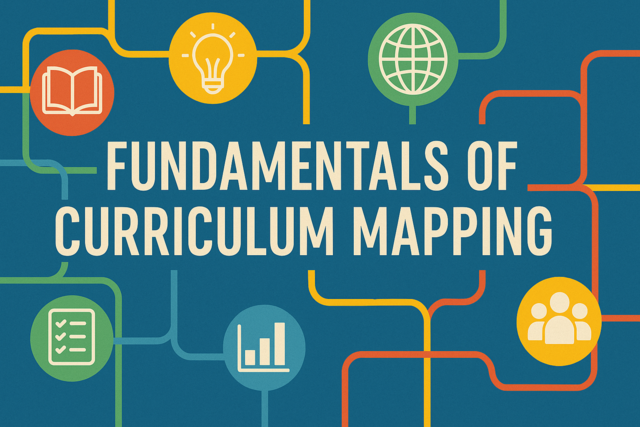 5 hours
0.5 CEUs
Fundamentals of Curriculum Mapping
+ More Info
5 hours
0.5 CEUs
Fundamentals of Curriculum Mapping
+ More Info
-
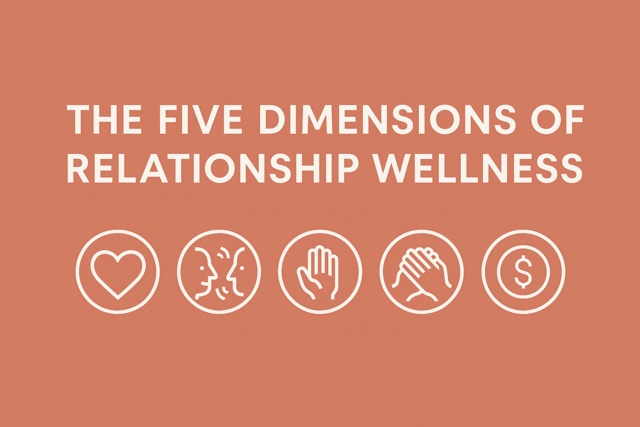 7 hours
0.7 CEUs
The Five Dimensions of Relationship Wellness
+ More Info
7 hours
0.7 CEUs
The Five Dimensions of Relationship Wellness
+ More Info
-
 5 hours
0.5 CEUs
Generational Patterns: How Narcissism Perpetuates Dysfunction
+ More Info
5 hours
0.5 CEUs
Generational Patterns: How Narcissism Perpetuates Dysfunction
+ More Info
-
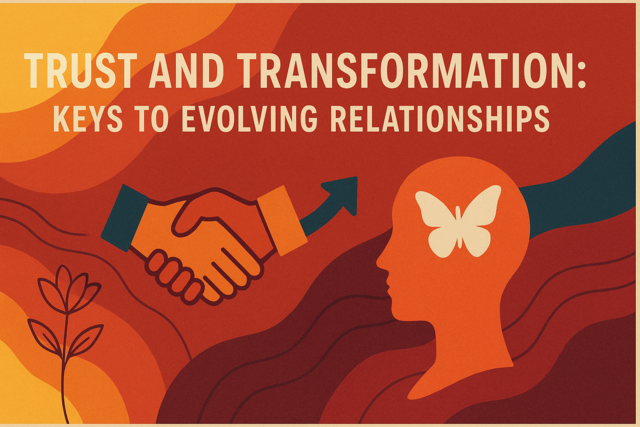 4 hours
0.4 CEUs
Trust and Transformation: Keys to Evolving Relationships
+ More Info
4 hours
0.4 CEUs
Trust and Transformation: Keys to Evolving Relationships
+ More Info
-
 3 hours
0.3 CEUs
Positive Reinforcement Techniques for Special Educators
+ More Info
3 hours
0.3 CEUs
Positive Reinforcement Techniques for Special Educators
+ More Info
-
 3 hours
0.3 CEUs
Agile and Scrum Fundamentals
+ More Info
3 hours
0.3 CEUs
Agile and Scrum Fundamentals
+ More Info
-
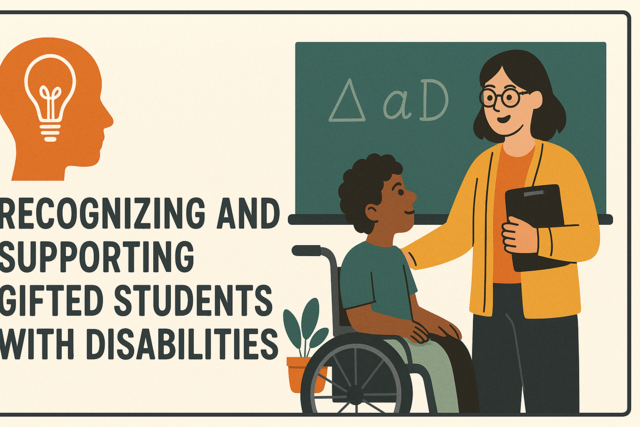 5 hours
0.5 CEUs
Recognizing and Supporting Gifted Students with Disabilities
+ More Info
5 hours
0.5 CEUs
Recognizing and Supporting Gifted Students with Disabilities
+ More Info
-
 7 hours
0.7 CEUs
Haute Couture Chronicles: Inside the World of Luxury Brands
+ More Info
7 hours
0.7 CEUs
Haute Couture Chronicles: Inside the World of Luxury Brands
+ More Info
-
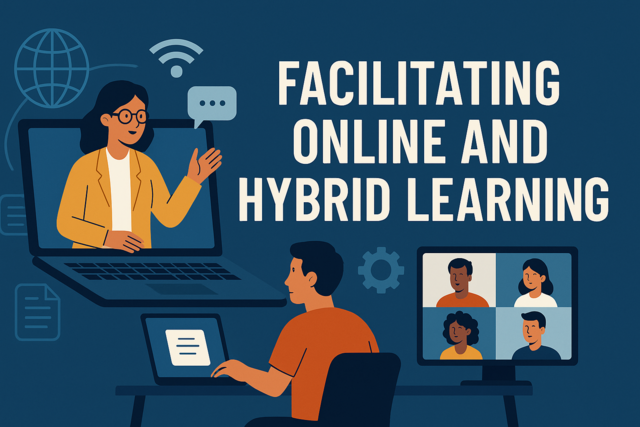 4 hours
0.4 CEUs
Facilitating Online and Hybrid Learning
+ More Info
4 hours
0.4 CEUs
Facilitating Online and Hybrid Learning
+ More Info
-
 4 hours
0.4 CEUs
Enhancing Student Engagement and Motivation
+ More Info
4 hours
0.4 CEUs
Enhancing Student Engagement and Motivation
+ More Info
-
 4 hours
0.4 CEUs
Assertiveness Training for Professionals
+ More Info
4 hours
0.4 CEUs
Assertiveness Training for Professionals
+ More Info
-
 4 hours
0.4 CEUs
Breathwork for Emotional Balance
+ More Info
4 hours
0.4 CEUs
Breathwork for Emotional Balance
+ More Info
-
 3 hours
0.3 CEUs
Sound Therapy and Vibrational Healing
+ More Info
3 hours
0.3 CEUs
Sound Therapy and Vibrational Healing
+ More Info
-
 7 hours
0.7 CEUs
Designing Interdisciplinary Curricula
+ More Info
7 hours
0.7 CEUs
Designing Interdisciplinary Curricula
+ More Info
-
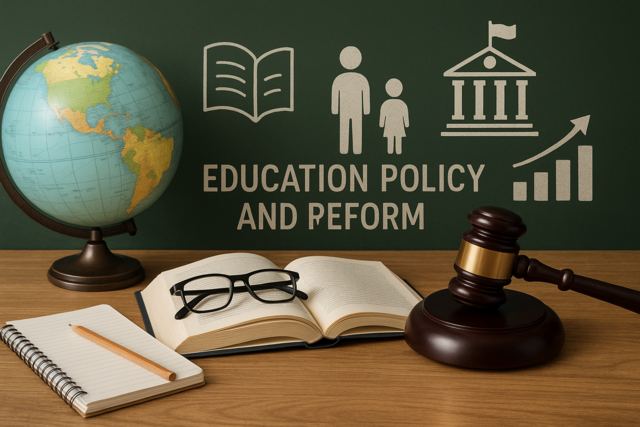 3 hours
0.3 CEUs
Education Policy and Reform: Impact and Implications
+ More Info
3 hours
0.3 CEUs
Education Policy and Reform: Impact and Implications
+ More Info
-
 5 hours
0.5 CEUs
Conflict Resolution: Turning Turmoil into Triumph
+ More Info
5 hours
0.5 CEUs
Conflict Resolution: Turning Turmoil into Triumph
+ More Info
-
 4 hours
0.4 CEUs
Esoteric Traditions and Ancient Wisdom
+ More Info
4 hours
0.4 CEUs
Esoteric Traditions and Ancient Wisdom
+ More Info
-
 6 hours
0.6 CEUs
Neuroscience of Trauma: How the Brain Processes and Heals from Trauma
+ More Info
6 hours
0.6 CEUs
Neuroscience of Trauma: How the Brain Processes and Heals from Trauma
+ More Info
-
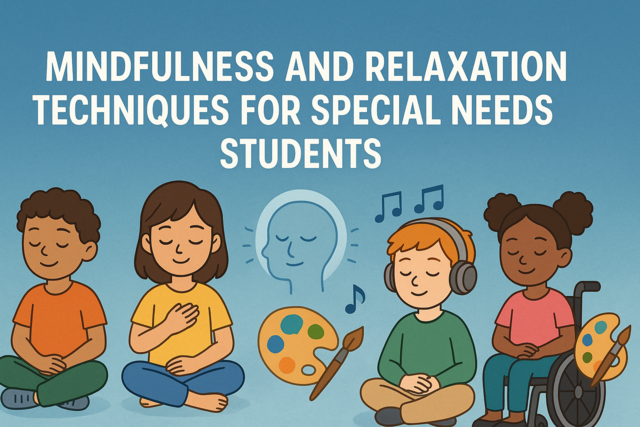 6 hours
0.6 CEUs
Mindfulness and Relaxation Techniques for Special Needs Students
+ More Info
6 hours
0.6 CEUs
Mindfulness and Relaxation Techniques for Special Needs Students
+ More Info
-
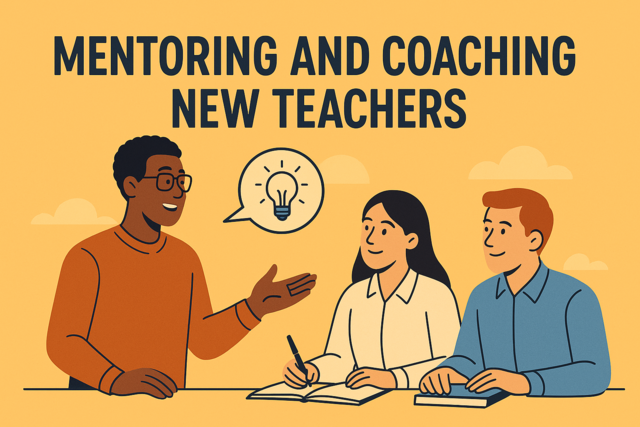 5 hours
0.5 CEUs
Mentoring and Coaching New Teachers
+ More Info
5 hours
0.5 CEUs
Mentoring and Coaching New Teachers
+ More Info
-
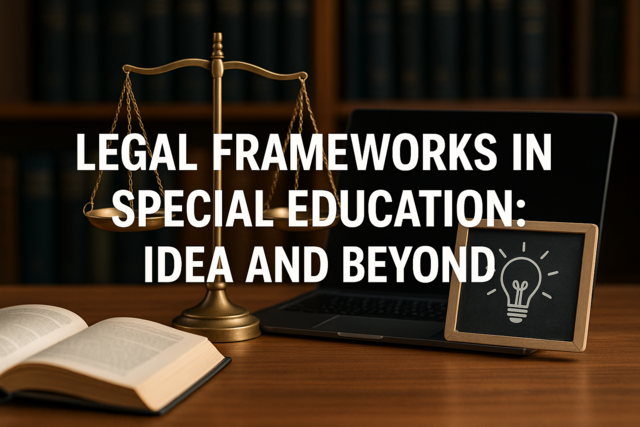 7 hours
0.7 CEUs
Legal Frameworks in Special Education: IDEA and Beyond
+ More Info
7 hours
0.7 CEUs
Legal Frameworks in Special Education: IDEA and Beyond
+ More Info
-
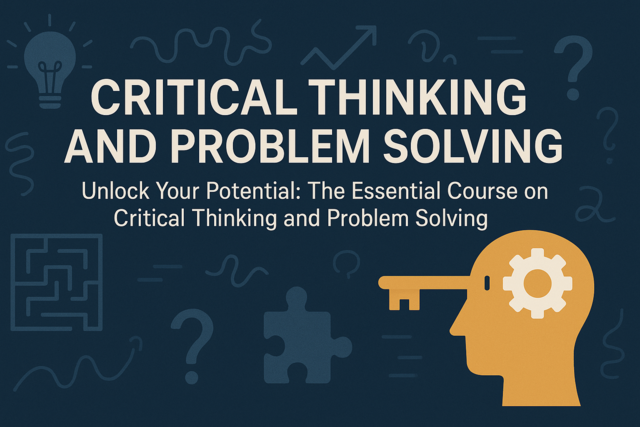 5 hours
0.5 CEUs
Critical Thinking and Problem Solving
+ More Info
5 hours
0.5 CEUs
Critical Thinking and Problem Solving
+ More Info
-
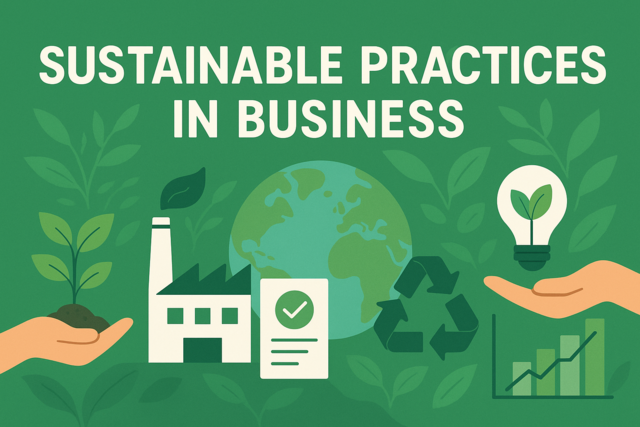 6 hours
0.6 CEUs
Sustainable Practices in Business
+ More Info
6 hours
0.6 CEUs
Sustainable Practices in Business
+ More Info
-
 3 hours
0.3 CEUs
Unpacking Attachment Styles: Keys to Healthier Relationships
+ More Info
3 hours
0.3 CEUs
Unpacking Attachment Styles: Keys to Healthier Relationships
+ More Info
-
 6 hours
0.6 CEUs
The Influence Index: How Environment Shapes Relationships
+ More Info
6 hours
0.6 CEUs
The Influence Index: How Environment Shapes Relationships
+ More Info
-
 5 hours
0.5 CEUs
Advanced Pedagogical Techniques
+ More Info
5 hours
0.5 CEUs
Advanced Pedagogical Techniques
+ More Info
-
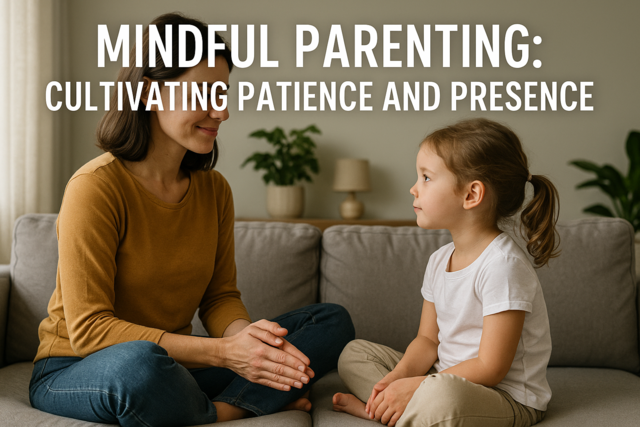 5 hours
0.5 CEUs
Mindful Parenting: Cultivating Patience and Presence
+ More Info
5 hours
0.5 CEUs
Mindful Parenting: Cultivating Patience and Presence
+ More Info
-
 3 hours
0.3 CEUs
Supervisory Skills for New Managers
+ More Info
3 hours
0.3 CEUs
Supervisory Skills for New Managers
+ More Info
-
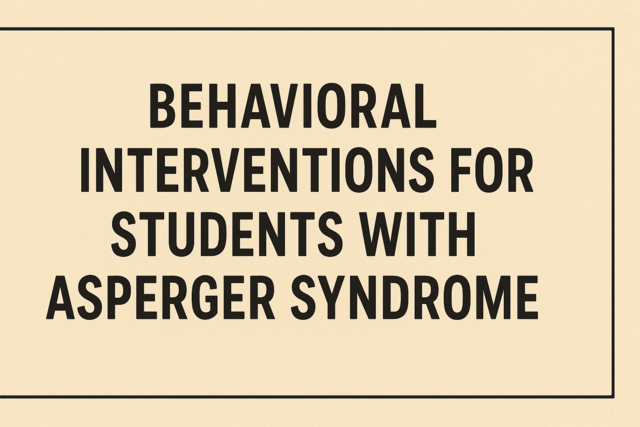 4 hours
0.4 CEUs
Behavioral Interventions for Students with Asperger Syndrome
+ More Info
4 hours
0.4 CEUs
Behavioral Interventions for Students with Asperger Syndrome
+ More Info
-
 7 hours
0.7 CEUs
Harmony at Home: Techniques for Peaceful Coexistence
+ More Info
7 hours
0.7 CEUs
Harmony at Home: Techniques for Peaceful Coexistence
+ More Info
-
 6 hours
0.6 CEUs
Boundaries and Balance: Essential Insights for Healthy Relationships
+ More Info
6 hours
0.6 CEUs
Boundaries and Balance: Essential Insights for Healthy Relationships
+ More Info
-
 3 hours
0.3 CEUs
Writing Across the Curriculum: Best Practices
+ More Info
3 hours
0.3 CEUs
Writing Across the Curriculum: Best Practices
+ More Info
-
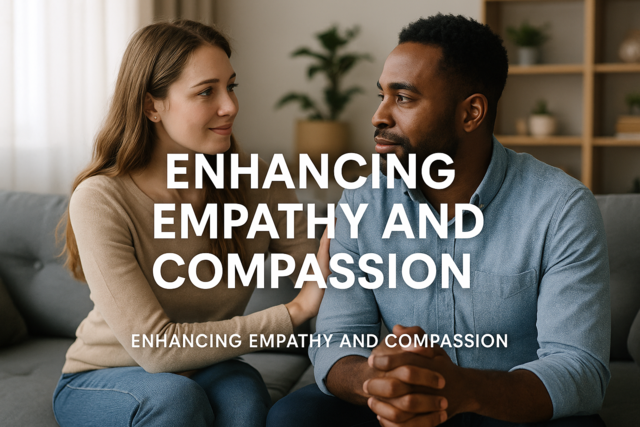 7 hours
0.7 CEUs
Enhancing Empathy and Compassion
+ More Info
7 hours
0.7 CEUs
Enhancing Empathy and Compassion
+ More Info
-
 6 hours
0.6 CEUs
The Influence of Social Media on Relationship Health
+ More Info
6 hours
0.6 CEUs
The Influence of Social Media on Relationship Health
+ More Info
-
 4 hours
0.4 CEUs
Educational Equity and Justice
+ More Info
4 hours
0.4 CEUs
Educational Equity and Justice
+ More Info
-
 4 hours
0.4 CEUs
Narcissistic Loops: Breaking the Cycle of Self-Absorption
+ More Info
4 hours
0.4 CEUs
Narcissistic Loops: Breaking the Cycle of Self-Absorption
+ More Info
-
 6 hours
0.6 CEUs
Beyond Glamour: Women's Luxury Fashion Unveiled
+ More Info
6 hours
0.6 CEUs
Beyond Glamour: Women's Luxury Fashion Unveiled
+ More Info
-
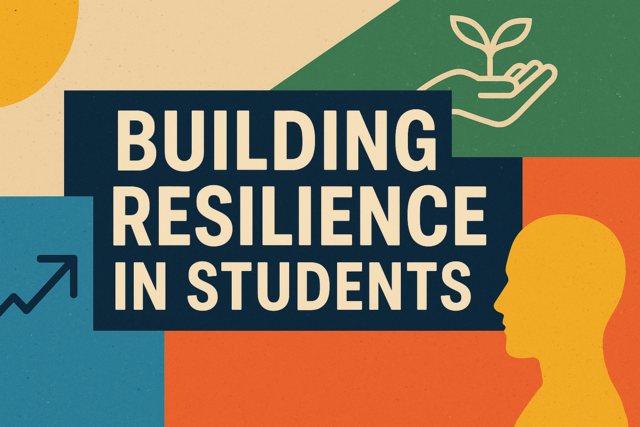 3 hours
0.3 CEUs
Building Resilience in Students
+ More Info
3 hours
0.3 CEUs
Building Resilience in Students
+ More Info


